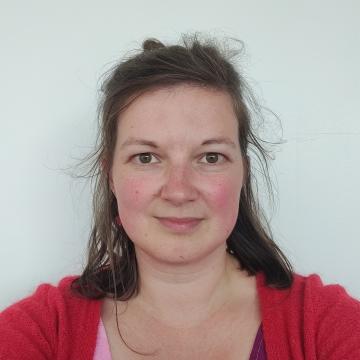dr. Sarah Bonte (PhD)

Post-doctoral researcher - Department of Applied Mathematics, Computer Science and Statistics - UGent
Principal investigator: prof. Yvan Saeys (PhD)
Research focus
Blood cancers remain a type of cancer with a dismal outcome, despite important progress in their treatment. Although the majority of fit patients achieve a complete remission, the chances of relapse are high.
Measurable residual disease (MRD) is an important negative prognostic factor for the risk of relapse in multiple hematological malignancies. Flow cytometry is a frequently used technique to detect MRD during follow-up of patients. We are focusing on automating the analysis of MRD flow cytometry data, to make the process faster, objective and more standardized. This research is performed in close collaboration with Prof Dr Tessa Kerre and Dr Mattias Hofmans.
Research in our group (the group of Prof Dr Yvan Saeys) also focuses on developing novel automated tools to standardize cytometry data analysis, including preprocessing and quality control of data. These tools will aid in further standardization of clinical cytometry workflows.
In addition, I am investigating flow cytometry and CITE-seq datasets of patients with acute myeloid leukemia (AML), to characterize inter- and intra-patient heterogeneity, further elucidate the phenotype of leukemic stem cells and apply machine learning models to predict the risk of relapse at diagnosis.
Key publications
- In vitro OP9-DL1 co-culture and subsequent maturation in the presence of IL-21 generates tumor antigen-specific T cells with a favorable less-differentiated phenotype and enhanced functionality. OncoImmunology. 2021
- T-cells with a single tumor antigen-specific T-cell receptor can be generated in vitro from clinically relevant stem cell sources. OncoImmunology, 2020. (PMID: 32117593)
- In vitro generation of mature, naive antigen-specific CD8(+) T cells with a single T-cell receptor by agonist selection'. Leukemia, 2014. (PMID: 24091848)
Contact
- Technologiepark 71, B-9052 Gent, Belgium